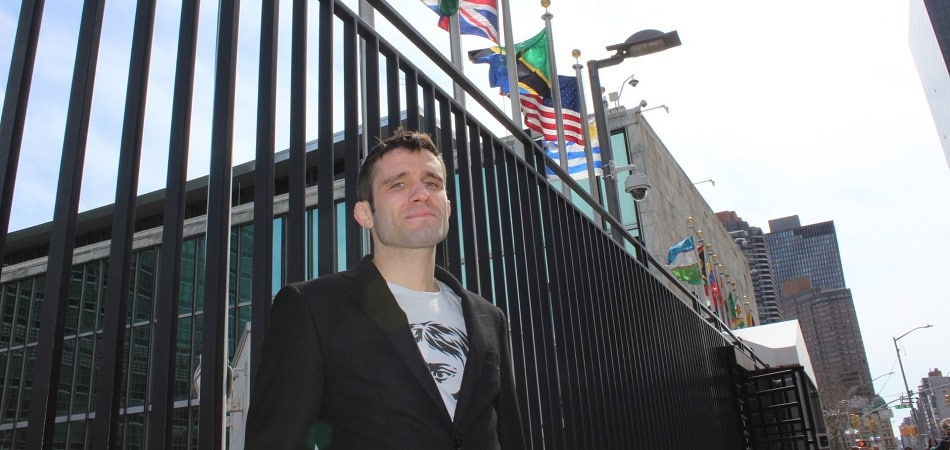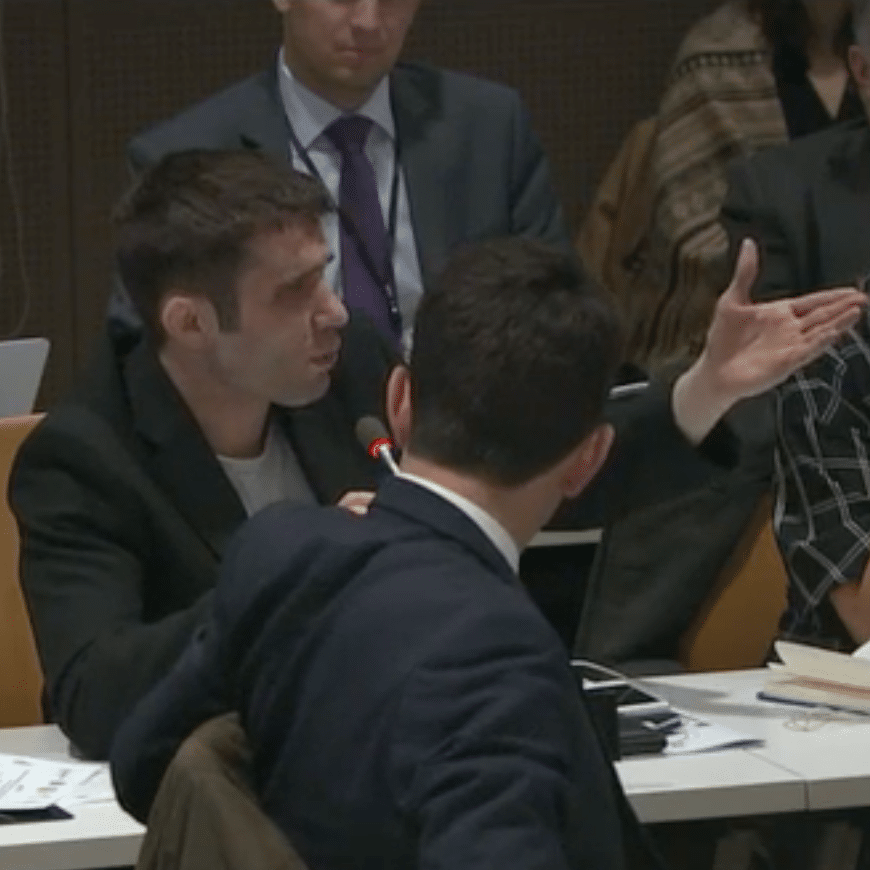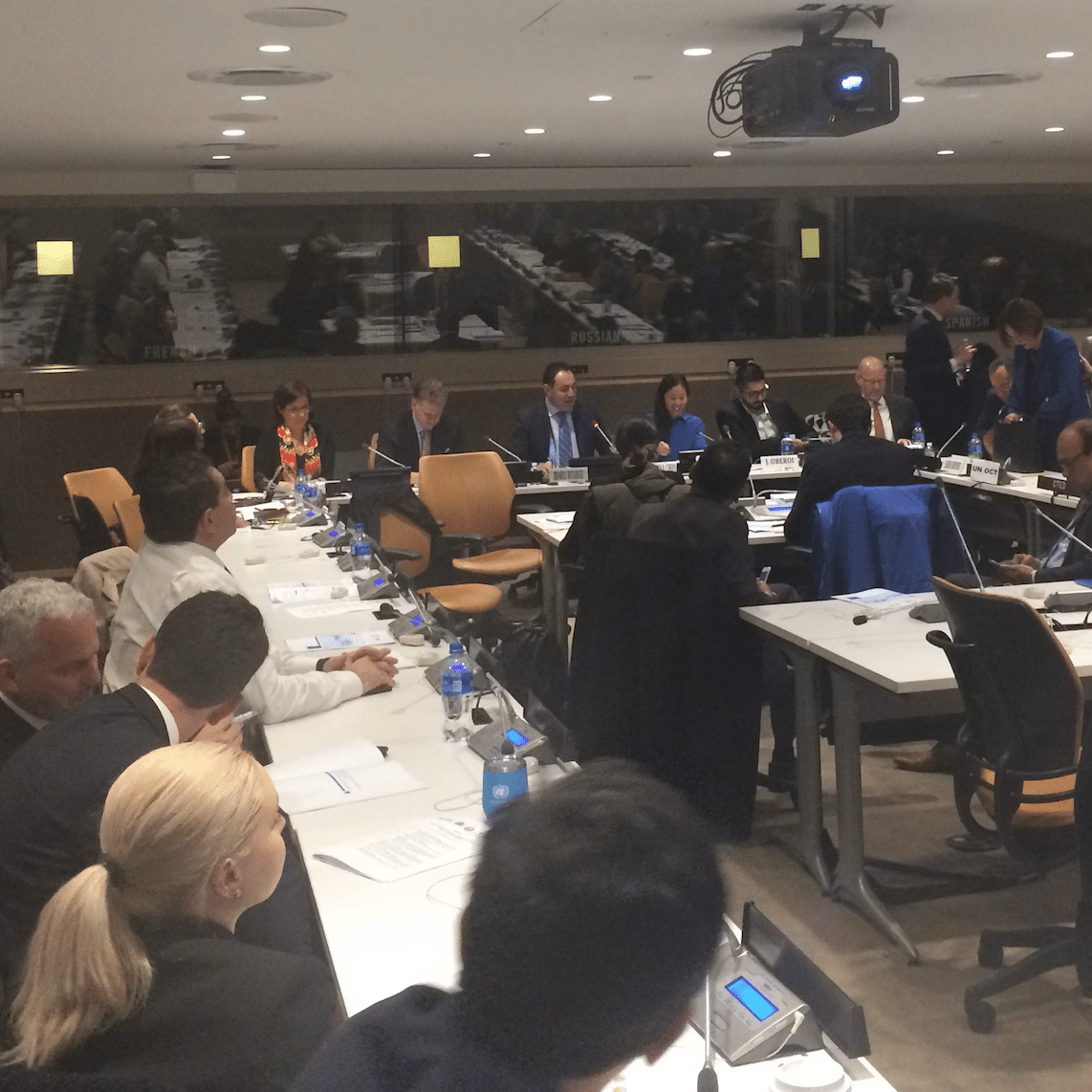
Event Title: Artificial Intelligence and Robotics: Reshaping the Future of Crime, Terrorism, and Security
Event Host: United Nations Headquarters, NYC
Date: April 2, 2019
Team Member: Daniel Faggella, Emerj Founder and CEO
Presentation Title: Beyond Deepfakes – AI and the Security Concerns of Programmatically Generated Everything
What Happened

Irakli Beridze, who heads the artificial intelligence and robotics initiative at UNICRI, invited us to speak at United Nations Headquarters. The event was put on by the United Nations and leaders from the United Araab Emirates, the Netherlands, and INTERPOL. In attendance were delegates from various countries and representatives from different organizations within and outside the UN.
Irakli had essentially asked us to help demonstrate some of the capabilities of artificial intelligence in programmatically-generating content, such as deep fakes, where artificial intelligence can pretend to be a person and to say things that that person never said.
This includes and isn’t limited to making a president make an announcement he never made or creating security camera footage of an event that never happened.
We were tasked with taking a one minute video of UNICRI’s director a.i., Bettina Tucci Bartsiotas, talking about deep fakes and replaced some of the words she said with “pineapple pizza.” We also put her face on a model’s head and made the model do the speaking. We edited Bettina’s voice to say the things we wanted her to say.
Our video kicked off the event after some formal statements from various organization. The video got some good laughs. We also put together a video talking about the consequences of this technology for law enforcement, which was shown after the deep fake video.
What We Learned
-

Irakli Beridze’s panel on AI and security There seems to be a common sentiment across nations that there will be some need for international governance around some of these technologies. Maybe some of these technologies are dangerous, and there might be a need for international governance. Obviously, there was an occasional slant that maybe that should happen at the United Nations, but there were a lot of vague calls for international governance, which seemed to be indicative of the fact that delegates are understanding how impactful these technologies could be.
- There was also discussion about social justice and equality. For example, One delegate had mentioned that only a small percentage of police officers were women, and so AI algorithms could be biased toward a man’s perspective. There were questions about whether they would have biases against certain races if we’re looking at predicting crime in certain areas. One delegate discussed how the algorithms could be biased against people who speak a relatively obscure language.
- At a panel hosted by Anita Hazenberg, Director of the INTERPOL Innovation Centre, I asked John Miller, Deputy Commissioner of Intelligence & Counterterrorism of the New York Police Department, how he thought the private sector would aid in developing law enforcement AI technologies. He mentioned that within the NYPD, there isn’t likely to be much tech innovation. It really is going to be provided by the vendor landscape, in that vendors are going to have to work to provide these technologies to law enforcement. He said we shouldn’t necessarily expect law enforcement or government to develop those technologies in-house. We should expect vendor companies to create them, and for law enforcement to have enough talent on their teams to be able to vet those technologies and buy them.
- Beridze hosted his own panel. Geoffrey Odlum, a former US diplomat and a global affairs consultant, sat on the panel and put a real emphasis on the cultural divide between the private sector and the police/military world within the United States. According to Odlum, there’s a disconnect between the technology innovators and the police and military and that this is a major hindrance to the United States upgrading its systems and being able to make use of these technologies in defense and security. In general, tech companies have an aversion to working with the government and that somehow that cultural divide needs to be bridged.
- Full video of this event is available for streaming at UN TV
- 1:07:00 – Emerj deepfake and AI demo from Daniel Faggella
- 1:14:00 – Anita Hazenberg (INTERPOL)’s panel
- 1:54:00 – Irakli Beridze (UNICRI)’s panel








